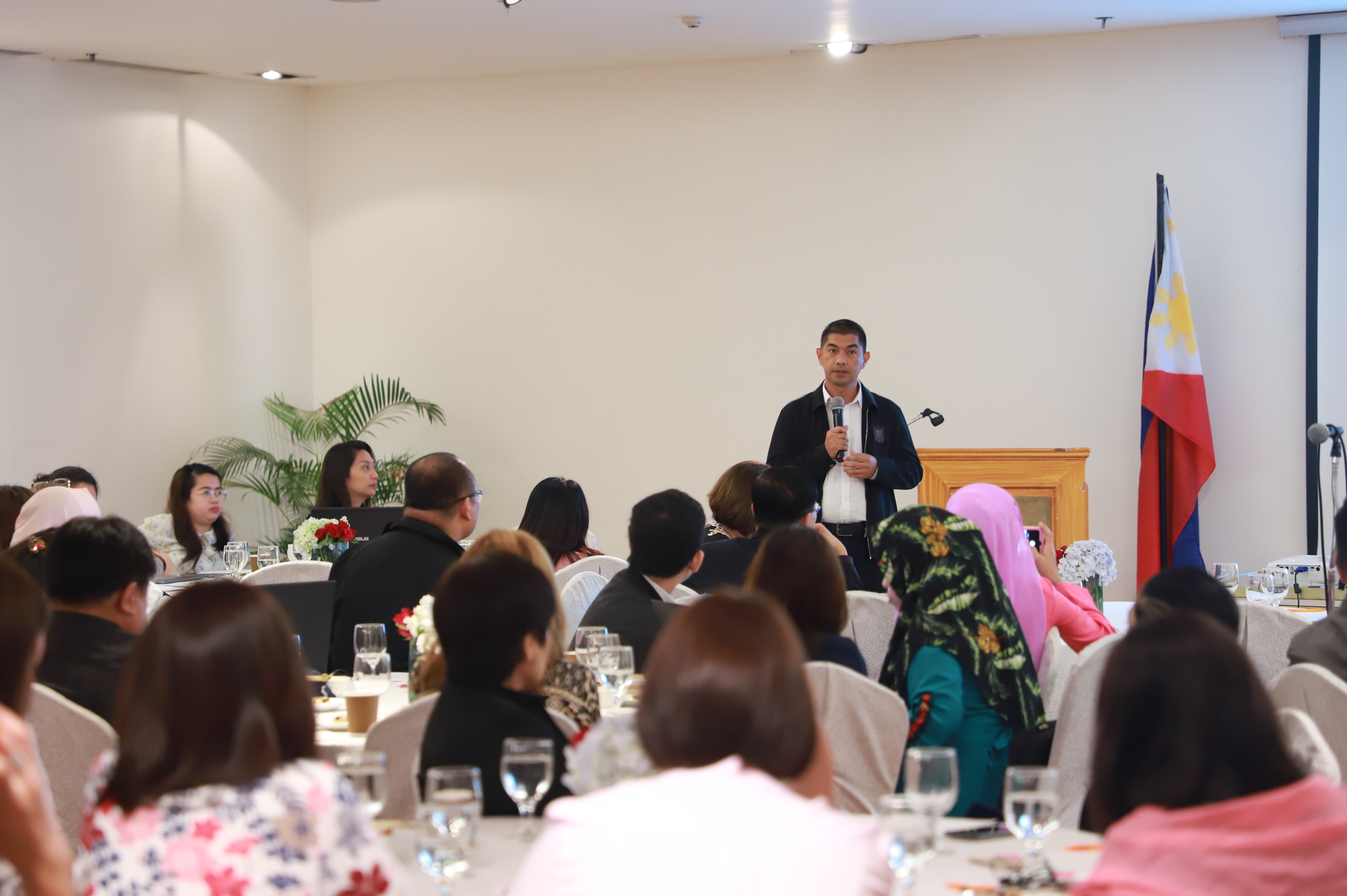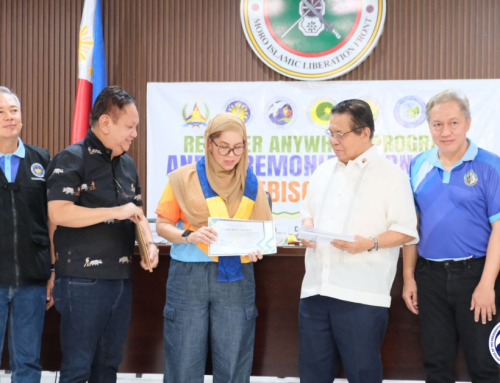QUEZON CITY, 17 July 2019 – There is a need to look back and reflect on the lessons of the past in order to bring long-lasting peace, justice and unity in the Bangsamoro.
This was underscored by Government of the Philippines (GPH) Implementing Panel Member and Co-chair of the Joint Normalization Committee Ariel Hernandez during the meeting of the Inter-Cabinet Cluster Mechanism on Normalization (ICCMN) held on July 15, 2019 in this city.
“Kasi ‘di ba, ang hirap balikan ng nakaraan. Lalo na kung magde-demand ang nakaraan ng hustisya. Ito kasi ang tendency, ‘Kalimutan na natin.’ Eh hindi natin pwedeng kalimutan ‘yon. Kailangan i-acknowledge in the first place,” Hernandez said.
(“It’s hard to go back in the past, especially if it demands justice. The tendency is to forget about it, but we cannot do that. We have to acknowledge it in the first place.)

“Transitional justice will continue the story that right now we are healing the wounds (of the past), and we are compensating, memorializing, and we are also going into the level of community reconciliation initiatives,” he added.
The Comprehensive Agreement on the Bangsamoro provided for the creation of a Transitional Justice, and Reconciliation Commission (TJRC) which was formally launched in September 2014 during the meeting of the GPH-MILF Peace Panels in Kuala Lumpur, Malaysia.
It is mandated to undertake a study and recommend to the Panels the appropriate mechanisms to correct historical injustices and address legitimate grievances, human rights violation and marginalization through land dispossession.
In the ICCMN meeting, Department of Agrarian Reform Undersecretary Carim Panumpang called on the national government agencies to use a “social justice lens” when providing services to the Bangsamoro people.
Government agencies “must be able to see how these contribute to national reconciliation. Laws are there already,” he said.
Security for decommissioning
Meanwhile, member-agencies under the Security sub-cluster identified the initial requirements for the decommissioning of combatants this September 7, 2019.
The decommissioning is in line with the objectives of Normalization in helping former MILF combatants achieve their desired quality of life through the pursuit of sustainable livelihood and political participation within a peaceful and deliberative society, and to put their weapons beyond use.
The Security sub-cluster includes the Department of Defense – Armed Forces of the Philippines (DND-AFP), Department of Interior and Local Government – Philippine National Police (DILG-PNP), National Intelligence Coordinating Agency, and the Office of the Solicitor General (OSG).
Continuous confidence-building
Meanwhile, Atty. Agripino Javier of OPAPP, co-Chair of the Confidence Building Measures sub-cluster, reaffirmed the government’s continued commitment to build on the gains of the Bangsamoro peace process.
“We have to do some steps para ipakita natin sa ating mga kasama on the other side that we are really serious on the steps that we are taking to ensure the success of the peace process,” Javier said.
Javier identified three interventions that would be implemented by the sub-cluster: the provision of safe conduct passes, the organization and operationalization of the Presidential Committee on the Grant of Bail, Release and Pardon (PCBRep), and amnesty.
Safe conduct passes were initially provided to parliament members of the Bangsamoro Transition Authority. While not everyone can be granted these passes, Javier encouraged all MILF members to apply with the PCBRep while awaiting for amnesty.
The Confidence Building Measures sub-cluster is composed of the AFP, PNP, OSG and National Bureau of Investigation.
Socio-economic empowerment is key
A key aspect of the decommissioning process is its socio-economic component, which includes social protection, capacity development and education, livelihood/employment assistance, infrastructure and planning/budget.
In order to deliver the best socio-economic packages to combatants who will undergo decommissioning, as well as their families, agencies under this sub-cluster need to enhance cooperation among themselves, according to Jonas George Soriano, co-chair of the Joint Task Force on Camps Transformation.
“Socio-econ completes the transformation, from arms to ploughshares of development,“ Soriano said.
During a brainstorming session, members of the Socio-Economic sub-cluster recommended that the Department of Social Welfare and Development should take the lead in the delivery of services since they have the experience and case workers to handle the job.
The proposed model is for one case worker to handle 30 combatants and their families.
The sub-cluster is composed of the Commission on Higher Education, the Departments of Agrarian Reform, Agriculture, Budget and Management, Education, Environment and Natural Resources, Finance, Health, Public Works and Highways, Social Welfare and Development, and Trade and Industry, Mindanao Development Authority, National Economic Development Authority, National Housing Authority, National Housing Authority, National Irrigation Administration, and Technical Education and Skills Development Authority. ###












